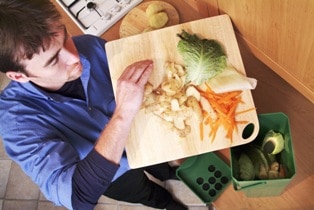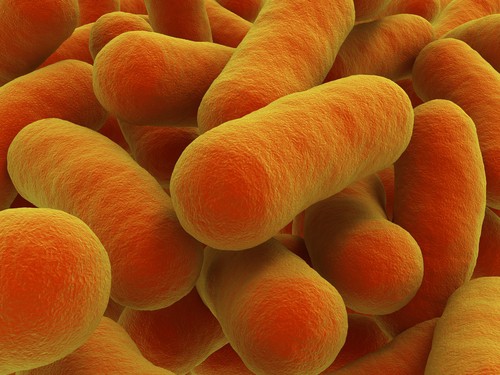The likelihood of contracting food poisoning from a household food waste caddy could be compared to that of being struck by lightning or attacked by a shark, an industry expert has claimed.
The comments came in response to a news story published in the Daily Mail newspaper on Saturday (August 2), headlined: How your slop bucket could poison your family, which claimed that keeping food caddies close to areas where food is prepared increases the risk of exposure to viruses such as E.coli or Salmonella.

The Mail article was written following the Environmental Audit Committees recommendation that food waste collections should be offered to every household across the country as a means of improving resource efficiency within the UK.
In the article, journalist Tessa Cunningham carried out an experiment on food waste deposited in a caddy in her kitchen, using a device known as a Speedy Breedy, which she claimed showed that the caddy could carry high levels of E.coli and salmonella.
The journalist used a five-litre food caddy, bought online, and followed guidance issued by Gloucester city council, which advises residents to keep containers on kitchen worktops or under sinks.
However, responding to the article, the Organics Recycling Group, part of the Renewable Energy Association, claimed that it is not aware of any incidences of food poisoning caused by germs spread from a food caddy having ever been reported in the UK, and that any such illness could easily be avoided.

‘Sensible siting of caddies and routine hygiene measuresmean that the risks are minimal probably on a par with lightning strikes or shark attacks.’
Jeremy Jacobs, REA
Risk
REA technical director Jeremy Jacobs said: Household food waste collection is well established across Europe. In the UK food waste is collected from over 12 million households without having caused one single reported incident of food poisoning. Sensible siting of caddies and routine hygiene measures (for example regular disinfections and the use of certified compostable caddy liners) mean that the risks are minimal probably on a par with lightning strikes or shark attacks.
The UK continues to landfill over seven million tonnes of food waste annually, belching vast quantities of the potent greenhouse gas methane into the climate. We must stop this unsustainable practice and collect household food waste weekly so it can be used to make renewable gas for electricity, heating and transport, and sustainable farming products, such as compost and biofertiliser, which will improve our rural economy and food security.
Straight
Container manufacturer Straight plc, which produces a large number of the food waste containers used by local authorities within the UK, also said it was unaware of any health issues that had arisen as a result of using food caddies and echoed the ORGs advice on storage.
Design
According to the company, food caddies are designed in such a way as to keep any moisture inside the container, which is intended to prevent the spread of germs.
A spokesman for the Yorkshire-based firm said: Food waste caddies were introduced to the market more than ten years ago and several million containers have been supplied over that time. We are not aware of any health issues associated with the use of these products which are specifically designed to retain any moisture inside the caddy.
It is clearly advisable when dealing with any waste products in the home to keep surrounding areas clean and to keep fresh foods away from waste food. Caddies should also be frequently emptied into the outdoor container.

Resource efficiency body the Waste & Resources Action Programme has also weighed into the debate, adding that research carried out on its behalf has indicated that there is no greater health risk to householders from food waste collection as there is for regular residual waste collections.
WRAP
A spokeswoman for the organisation said: Householder feedback from the extensive food waste collections trials programme conducted by WRAP was published in the 2009 report, Public attitudinal surveys of food waste collections. This reported on householder attitudes and satisfaction (via surveys) and in-depth views (via focus groups). There was a clear consensus that the majority of those surveyed encountered no problems with using the service.
The report did highlight that concerns around the issues of hygiene, odour or vermin collectively were the most common reasons stated by people for not participating in food waste collections (in total 24% of non-participant respondents). However, only 6% of total respondents who used the service indicated they had experienced any of these issues. The majority of respondents were also satisfied with the containers provided and caddy liners.
WRAP also highlighted that it is working to address the perceptions of those who are choosing not to participate in food waste recycling, in order to better understand what the barriers are to this becoming an established part of the household routine.







[…] Source: https://www.letsrecycle.com […]